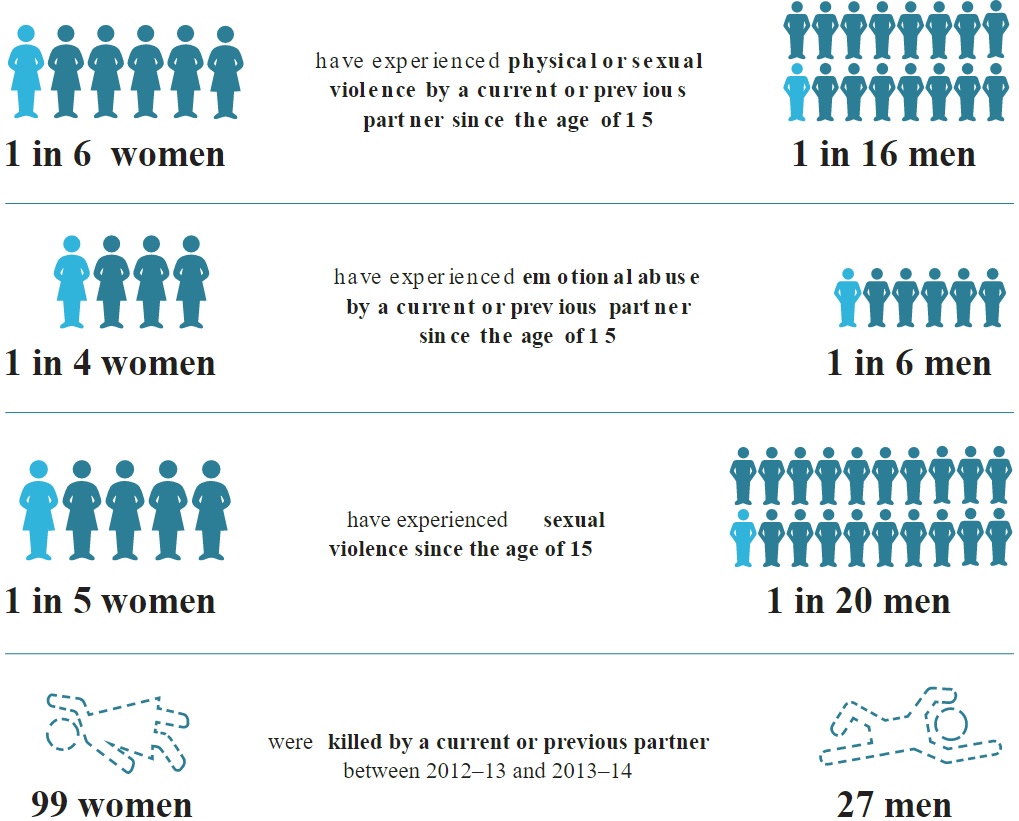Family, domestic and sexual violence is a major health and welfare issue in Australia and globally. It occurs across all ages, socioeconomic and demographic groups but mainly affects women and children. Indigenous women, young women and pregnant women are particularly at risk.
The Australian Institute of Health and Welfare report released on 28 February 2018 combines data from more than 20 sources to provide a comprehensive picture of what is known about family, domestic and sexual violence in Australia.
Some interesting data from the report is set out below. A full copy of the report is available here.
Violence takes various forms
* Source: Family, domestic and sexual violence in Australia 2018, Australian Institute of Health and Welfare
Often people do not seek advice or support
A large proportion of women and men do not seek help or support for partner violence.
For women
According to the 2016 Australian Bureau of Statistics (ABS) Personal Safety Survey (2016 PSS), almost half of the women (46%) who experienced current partner violence and more than one-third (37%) who experienced previous partner violence did not seek advice or support after the incident.
The most common reasons women gave for not seeking advice or support were that they either:
- felt they could deal with the issue themselves (50% for current partner violence; 47% for previous partner violence);
- thought the incident was not serious enough (36% for current partner violence; 18, for previous partner violence); or
- felt shame or embarrassment (11% for current partner violence; 25% for previous partner violence).
For men
According to the 2016 PSS, more than two-thirds of men (68%) who experienced current partner violence, and 3 in 5 men (59%) who experienced previous partner violence did not seek advice or support after the incident.
The most common reasons men gave for not seeking advice or support were that they either:
- thought it was not serious enough to seek help (49% for current partner violence; 22% for previous partner violence);
- felt that they could deal with it themselves (37% for current partner violence; 60% for previous partner violence); or
- did not want or need help (31% for current partner violence; 31% for current previous partner violence).
Police and legal system
Police intervention is a key entry point to formal family, domestic and sexual violence services for victims and perpetrators.
In some cases, a court order (known as a restraining order) can be obtained to prohibit an individual from carrying out a particular action, especially approaching or contacting a specified person.
Based on the 2016 PSS, of those who experienced previous partner violence:
- 1 in 4 (24%) women had a restraining order issued against their previous partner; and
- 1 in 10 (10%) men had a restraining order issued against their previous partner.
For information on restraining orders, click here.





